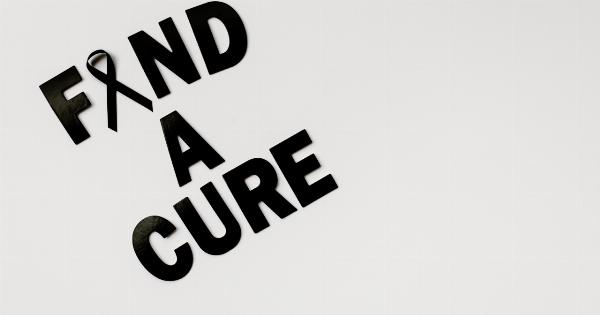Cancer is a deadly disease that can affect anyone, regardless of their age, gender, or lifestyle. However, some people may not be aware of the early signs and symptoms of cancer, which could lead to a delay in diagnosis and treatment.
In this article, we will discuss some bizarre symptoms that could be cancer related. It is essential to note that these symptoms do not always indicate the presence of cancer, but it is important to consult a healthcare professional if you experience any of them.
Unusual and Persistent Coughing
Coughing is a common symptom of respiratory infections such as the flu or a cold. However, if you have a persistent cough that lasts more than three weeks, it could be a sign of lung cancer.
Other symptoms that may accompany a persistent cough include chest pain, wheezing, and shortness of breath. If you experience any of these symptoms, it is important to consult a healthcare professional immediately.
Unexplained Weight Loss
If you suddenly lose weight without trying, it could be a sign of cancer. Weight loss can occur due to a decrease in appetite, which may be a result of cancer-related symptoms such as fatigue, pain, or nausea.
Cancer cells can also release substances that cause a loss of appetite or increase the metabolism, leading to weight loss. If you lose more than ten pounds without trying, it is essential to consult a healthcare professional.
Bloating and Abdominal Pain
Bloating is a common symptom that can occur due to various reasons, such as menstruation, irritable bowel syndrome, or consuming gas-producing foods.
However, if you experience persistent bloating accompanied by abdominal pain, it could be a sign of ovarian cancer. Other symptoms that may accompany ovarian cancer include abdominal swelling, changes in bowel habits, and frequent urination.
Abnormal Vaginal Bleeding
Women experiencing abnormal vaginal bleeding outside their menstrual cycle could be experiencing a sign of cancer. This may include bleeding after sex or heavy bleeding during periods. This could be a sign of ovarian or cervical cancer.
If you are experiencing symptoms like these, it’s essential to see a doctor and get a proper diagnosis.
Sudden Changes in Moles or Skin Lesions
If you notice sudden changes in the shape, size, or color of a mole or skin lesion, it could be a sign of skin cancer. Skin cancer can occur anywhere on the body, even in areas that do not receive sun damage.
Other symptoms that may accompany skin cancer include itching, bleeding, or oozing.
Chronic Fatigue
Chronic fatigue is a common symptom that can be caused by several medical conditions, including cancer. Cancer-related fatigue is different from normal fatigue because it doesn’t improve with rest or sleep.
If you experience chronic fatigue and have other cancer-related symptoms, it is essential to consult a healthcare professional.
Swelling and Pain in the Leg
Swelling and pain in the leg can be a sign of deep vein thrombosis (DVT), which is a blood clot that forms in a deep vein. DVT can occur due to several factors, including cancer. Cancer cells can release substances that increase the risk of blood clots.
Other symptoms that may accompany DVT include warmth and redness in the affected area.
Mouth Sores That Don’t Heal
If you have mouth sores that won’t heal, it could be a sign of oral cancer. These mouth sores can be painful and may bleed.
Other symptoms that may accompany oral cancer include difficulty swallowing, ear pain, and a thickening or lump in the cheek or tongue.
Difficulty Urinating
If you experience difficulty urinating or a frequent need to urinate, it could be a sign of prostate cancer. Other symptoms that may accompany prostate cancer include blood in the urine, painful ejaculation, and bone pain.
Conclusion
Cancer can be a life-threatening disease that can strike at any age. It is necessary to pay attention to the early warning signs and symptoms mentioned above to increase your chances of diagnosis and treatment.
If you experience any of these symptoms, it is essential to consult a healthcare professional. In addition, maintaining a healthy lifestyle, including regular exercise, a balanced diet, and stress management, can help reduce the risk of cancer.




















